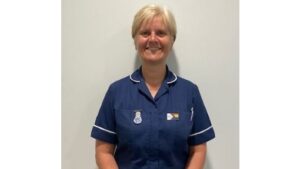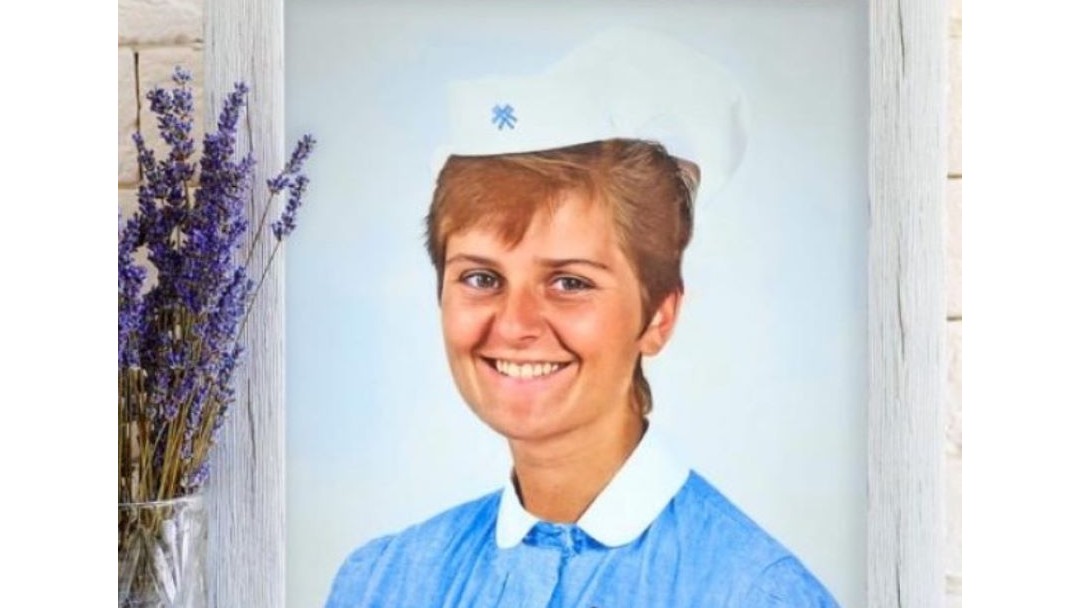This week we are running a series of special feature articles to mark Armed Forces Week. These stories are highlighting the positive contribution former members of the armed forces are making after taking up careers in health and care. Today, we meet Amanda Atkinson, a GP practice nurse who made the transition to primary healthcare after learning her trade in a military environment.
Tell us a bit about your military background and the roles you held during your service?
I joined the Queen Alexandra’s Royal Naval Nursing Service (QARNNS) in 1990 and spent six years in service. I completed my basic training at HMS Raleigh, which was designed to introduce us to the values of the Armed Forces and military life before moving on to our specific specialty. I was in nurse training for the first three years in conjunction with Portsmouth University and lived and worked at Royal Naval Hospital Haslar in Gosport. The level of nurse training within the QARNNS was of an excellent standard. During periods of academic leave when our civilian colleagues were given longer time off, we would spend time doing training specific to our military role, such as team-building exercises, fitness tests, and sporting activities, as well as advanced first aid drills and scenarios in old blacked-out buildings. We would also be provided with leadership training comprising expeditions on Dartmoor or in the South Downs.
 Although I was not part of any conflict during my time serving, my nursing experience consisted mainly of orthopaedic and emergency nursing. Our priority was to ensure that the military personnel we cared for were able to return to their duty as fully recovered as possible to perform their roles. I cared for and learned a lot about the effects on those who served in areas of conflict. The camaraderie was exceptional in the military. We were all away from our families and in such a new and often challenging environment. The social and sporting opportunities were a great way to promote a sense of togetherness.
Although I was not part of any conflict during my time serving, my nursing experience consisted mainly of orthopaedic and emergency nursing. Our priority was to ensure that the military personnel we cared for were able to return to their duty as fully recovered as possible to perform their roles. I cared for and learned a lot about the effects on those who served in areas of conflict. The camaraderie was exceptional in the military. We were all away from our families and in such a new and often challenging environment. The social and sporting opportunities were a great way to promote a sense of togetherness.
What motivated you to transition from the armed forces to a career in the NHS?
Having trained as a nurse in the navy, the NHS was the obvious choice for me as a civilian. I have worked in various NHS Trusts both in England and in Scotland. I like the structure that the NHS Trust can provide in terms of good human resources teams, the provision of mandatory training and induction and the opportunity to develop by means of annual appraisals and setting goals. The NHS provided a sense of stability in my career.
How have the skills you developed in the military been useful in your current NHS role?
The personal skills I developed in the military include good time management, self-discipline, team-building and leadership abilities, adaptability to change, and respect for others. These skills ensure I can manage my day-to-day clinics in an effective manner to the best of my ability while providing support to the wider team.
How does the sense of teamwork and camaraderie in the NHS compare to what you experienced in the armed forces?
I was part of the mass COVID vaccine team program working for NHS Lanarkshire. This involved caring for and advising thousands of patients per day in the vaccine clinics, as well as supporting junior members of the team and taking leadership responsibilities on a shift. At the beginning, the information about the vaccines was vast and was changing by the day and sometimes by the hour. We would also respond to anxious or unwell patients without prior warning.
My military training helped me to adapt to these changing and unpredictable situations and to remain level-headed in stressful situations. I was able to provide guidance to other members of the team and provide solutions to some of the challenges we faced.
What are some of the biggest challenges you faced when transitioning from the armed forces to the NHS, and how did you overcome them?
I found it hard to adjust to a different structure in the NHS compared to the Armed Forces. I overcame this by ensuring I understood processes and where to find information and by keeping an open and honest dialogue with my line management. I try to instil in others the values I hold and the benefit of these to the team and the patient.
How does the sense of teamwork and camaraderie in the NHS compare to what you experienced in the armed forces?
Being part of the NHS, especially in a team environment, does come with similar levels of fun times and sad times, and being able to support each other through these is very valuable. I have made some good comrades over the years in the NHS.
What advice would you give to other veterans who are thinking about a career in the NHS?
I would recommend the NHS for those armed forces members who are looking to work in an organization with values, leadership, and opportunities, as well as the chance to make new comrades.



